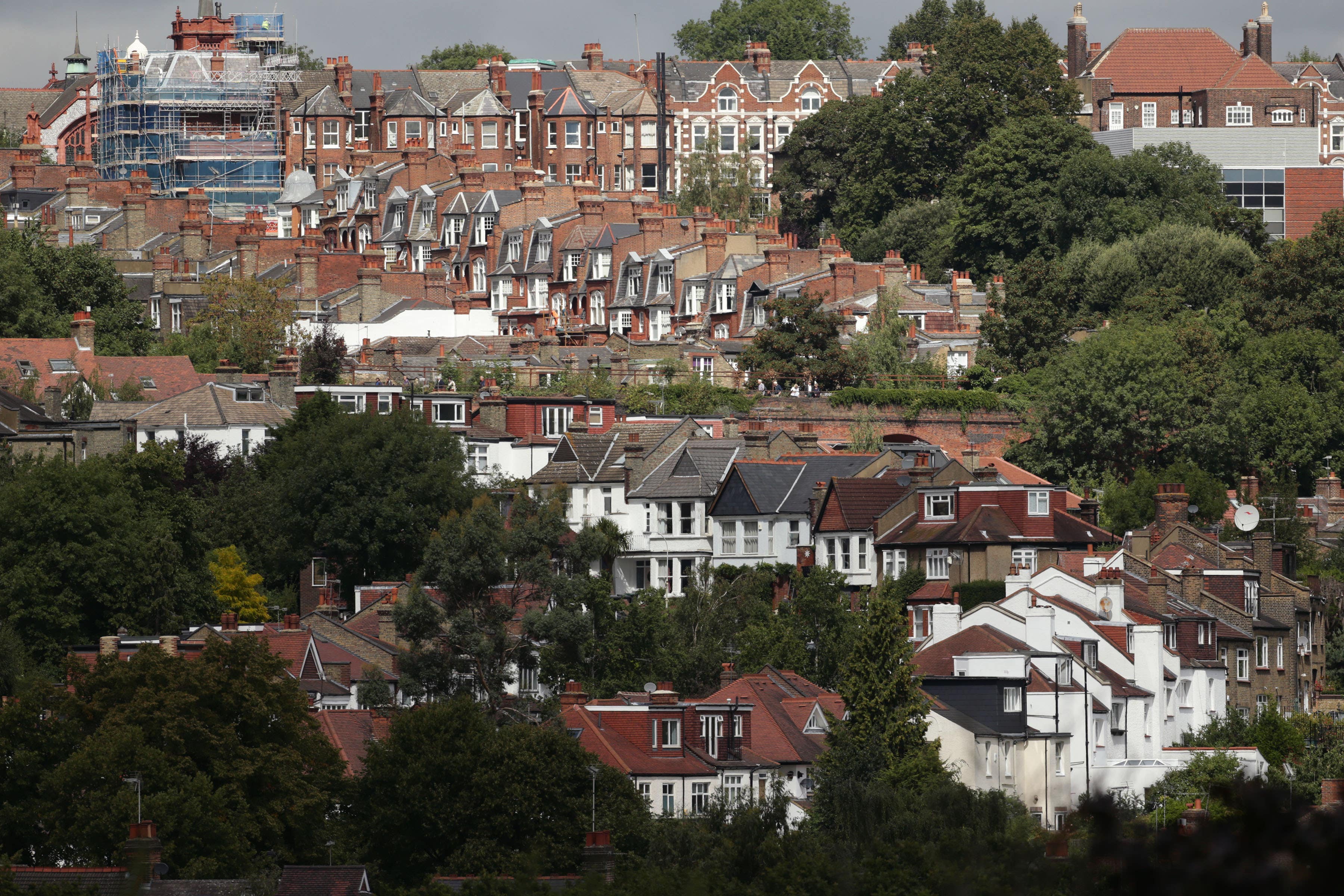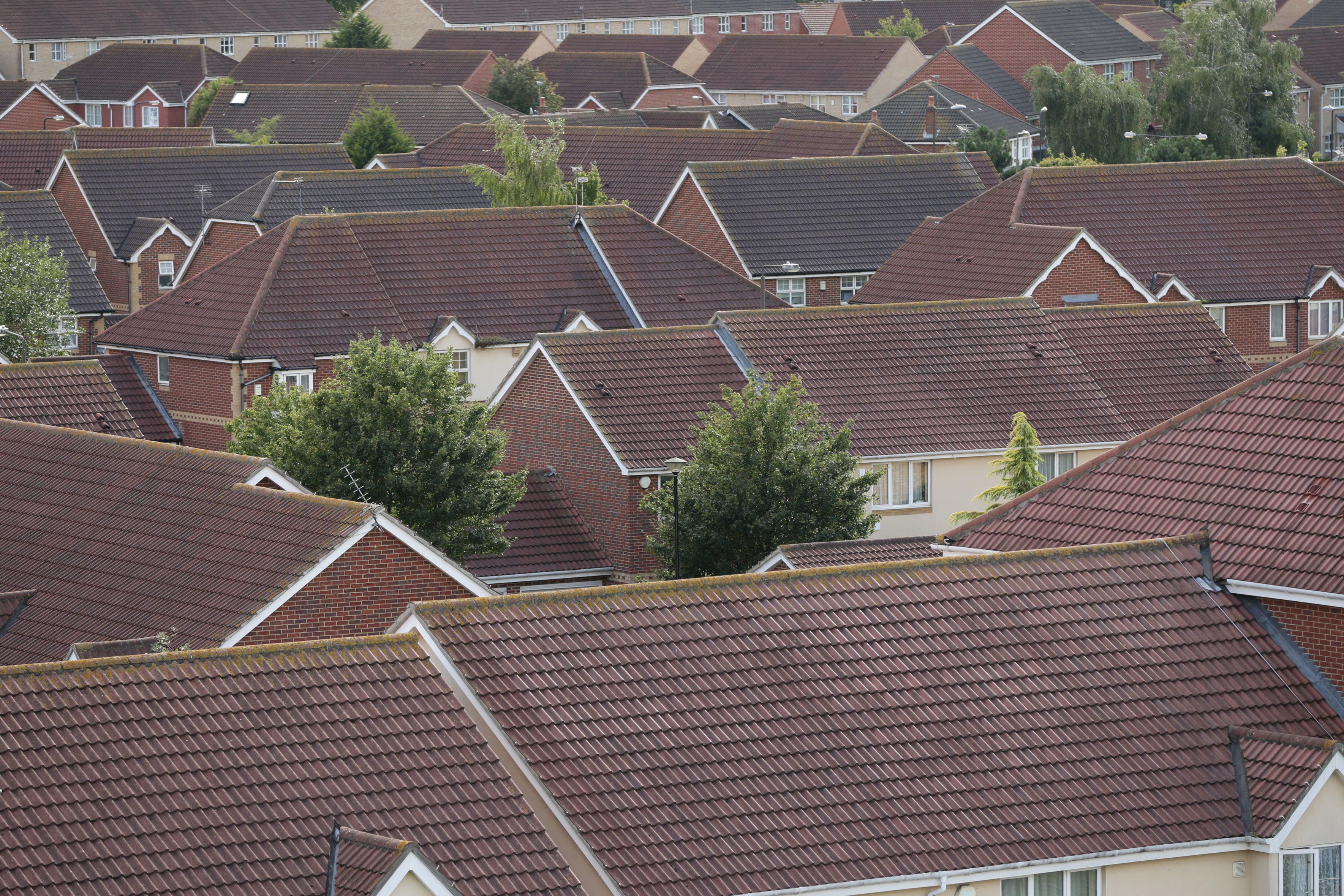UK house prices are set to rise – but for how long?
The General Election is likely to have caused movement in the housing market to slow down

Your support helps us to tell the story
From reproductive rights to climate change to Big Tech, The Independent is on the ground when the story is developing. Whether it's investigating the financials of Elon Musk's pro-Trump PAC or producing our latest documentary, 'The A Word', which shines a light on the American women fighting for reproductive rights, we know how important it is to parse out the facts from the messaging.
At such a critical moment in US history, we need reporters on the ground. Your donation allows us to keep sending journalists to speak to both sides of the story.
The Independent is trusted by Americans across the entire political spectrum. And unlike many other quality news outlets, we choose not to lock Americans out of our reporting and analysis with paywalls. We believe quality journalism should be available to everyone, paid for by those who can afford it.
Your support makes all the difference.The average price of a house in the UK remained relatively flat in June. However, property values are likely to rise modestly through this year and into 2025.
House prices fell by 0.2% month-on-month or just under £500 in cash terms in June, Halifax said.
The annual rate of house price growth stood at 1.6%, and on an annual basis house prices have increased for seven months in a row.
Halifax said the UK house price in June was £288,455, edging down from £288,931 in May.
Amanda Bryden, head of mortgages, Halifax, said: “UK house prices stayed relatively flat for the third successive month in June, with the slight fall equivalent to less than £500 in cash terms.”
She continued: “This continued stability in house prices – rising by just 0.4% so far this year – reflects a market that remains subdued, though overall activity has been recovering.
“For now it’s the shortage of available properties, rather than demand from buyers, that continues to underpin higher prices.
“Mortgage affordability is still the biggest challenge facing both home buyers and those coming to the end of fixed-term deals.
“This issue is likely to be eased gradually, through a combination of lower interest rates, rising incomes, and more restrained growth in house prices.
“While in the short-term the housing market is delicately balanced and sensitive to the pace of change to base rate, based on our current expectations property prices are likely to rise modestly throughthe rest of this year and into 2025.”
Regional figures
Here are average house prices and the annual rate of growth, according to Halifax (regional annual change figures are based on the most recent three months of approved mortgage transaction data):
– East Midlands, £238,311, 0.3%
– Eastern England, £328,747, minus 0.9%
– London, £536,306, 0.9%
– North East, £172,308, 3.0%
– North West, £231,351, 3.8%
– Northern Ireland, £192,457, 4.0%
– Scotland, £204,663, 1.6%
– South East, £385,056, 0.5%
– South West, £301,973, 0.7%
– Wales, £220,197, 2.7%
– West Midlands, £253,049, 1.3%
– Yorkshire and the Humber, £206,370, 1.9%
In some signs of relief for borrowers, lenders including Halifax, HSBC UK, Barclays, Santander, NatWest and Yorkshire Building Society have been chopping their mortgage rates this week.
Some 1.6 million mortgages are coming off fixed rates this year, according to UK Finance.
Labour’s General Election landslide could deliver a confidence boost to the housing market, some commentators suggested.
Alice Haine, personal finance analyst at Bestinvest by Evelyn Partners, the wealth manager, said: “A stable political environment can potentially deliver a confidence boost to the housing market, particularly one that has struggled over the past year with high borrowing costs and a dearth of available and affordable stock.
“Buying a first home, upsizing and even downsizing are all major personal finance decisions, which is why confidence in how your country is run is vitally important.
“Interest rates have remained at a 16-year high of 5.25% for almost a year causing major affordability challenges for first-time buyers and those looking to move to larger homes.
“While the combination of lower inflation and strong wage growth has offered a slight boost to housing affordability, for many the dream of home ownership is still out of reach.
“Throw in interest rate cuts, however, with the first reduction expected as early as next month on August 1, and, in turn, more competitive mortgage rates, and the market could experience a surge in demand.”

Ms Haine added: “Labour will be keen to encourage more first-time buyers to get a foot on the UK’s housing ladder, something that has become a major challenge for many young, and not so young, buyers in recent years who have struggled to find affordable homes in many parts of the country.”
Iain McKenzie, CEO of the Guild of Property Professionals, said: “Despite high interest rates and the run-up to the general election, the property market has remained resilient, which is reflected in the more optimistic house price forecasts for the remainder year.
“We are seeing confidence return to the market and expect it will continue to build momentum once the dust settles post election.”
Tom Bill, head of UK residential research at estate agent Knight Frank, said: “Stubbornly high mortgage rates and the uncertainty of a General Election means the UK housing market has not experienced a particularly strong seasonal bounce this spring.
“We expect trading volumes to increase from the autumn as a rate cut becomes imminent and relative calm returns to Westminster. A Labour victory will have little bearing on what happens in the property market in 2024 and our forecast of an average 3% UK rise is unchanged.”
Nathan Emerson, CEO of property professionals’ body Propertymark, said: “The announcement of a General Election last month may have caused movement in the housing market to slow down, but now that we know we have a new government with an overall working majority, Propertymark remains optimistic that house prices will start to rise during the summer months, a busy time for the housing market.”